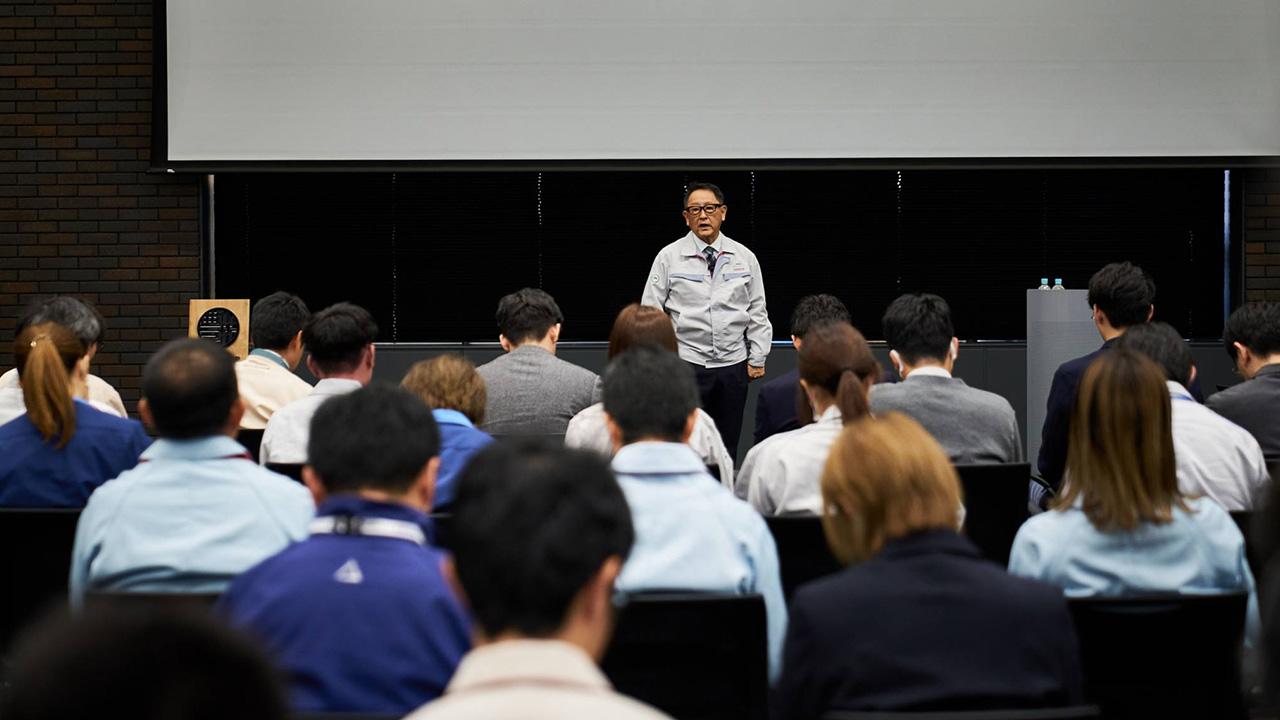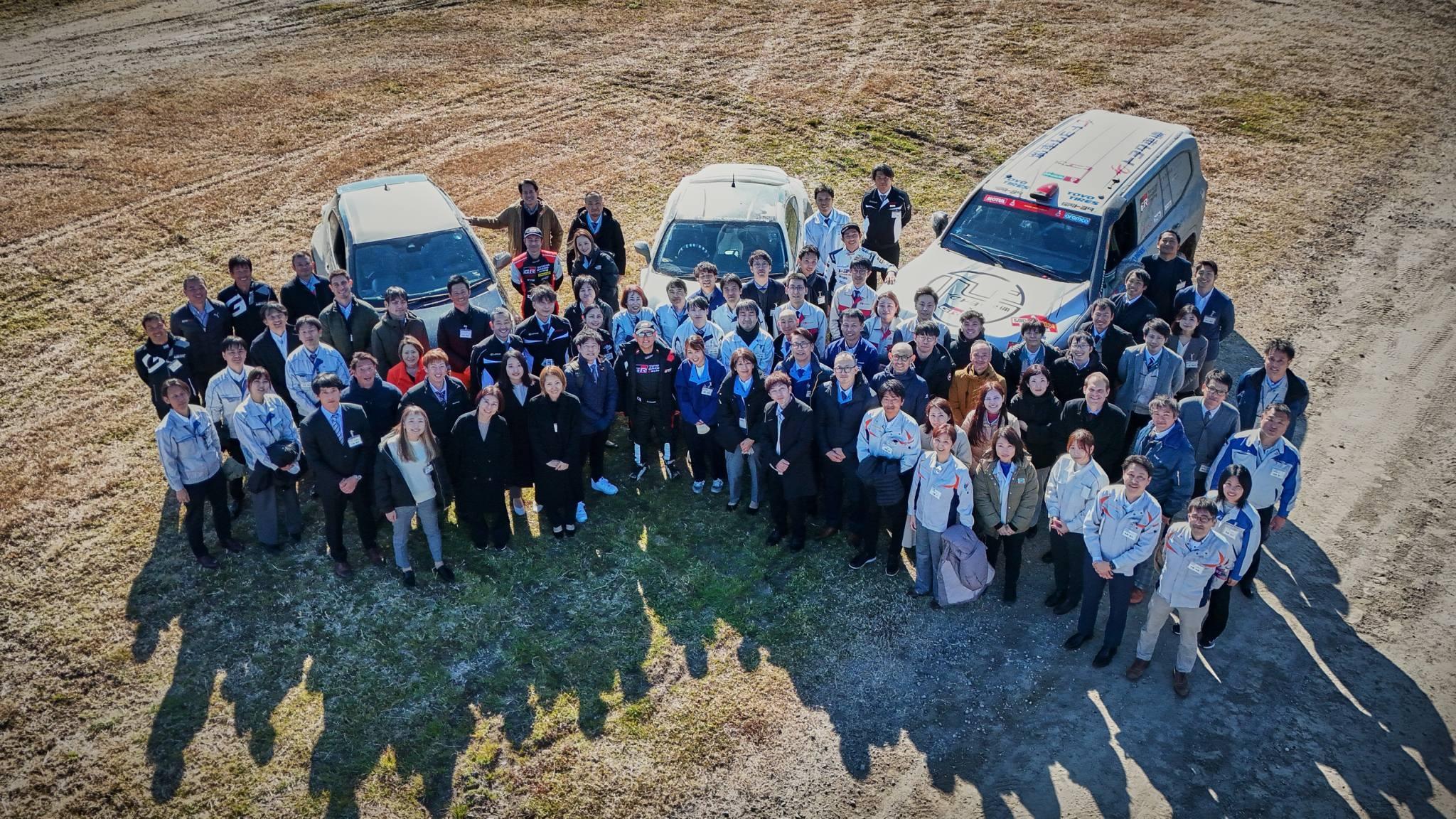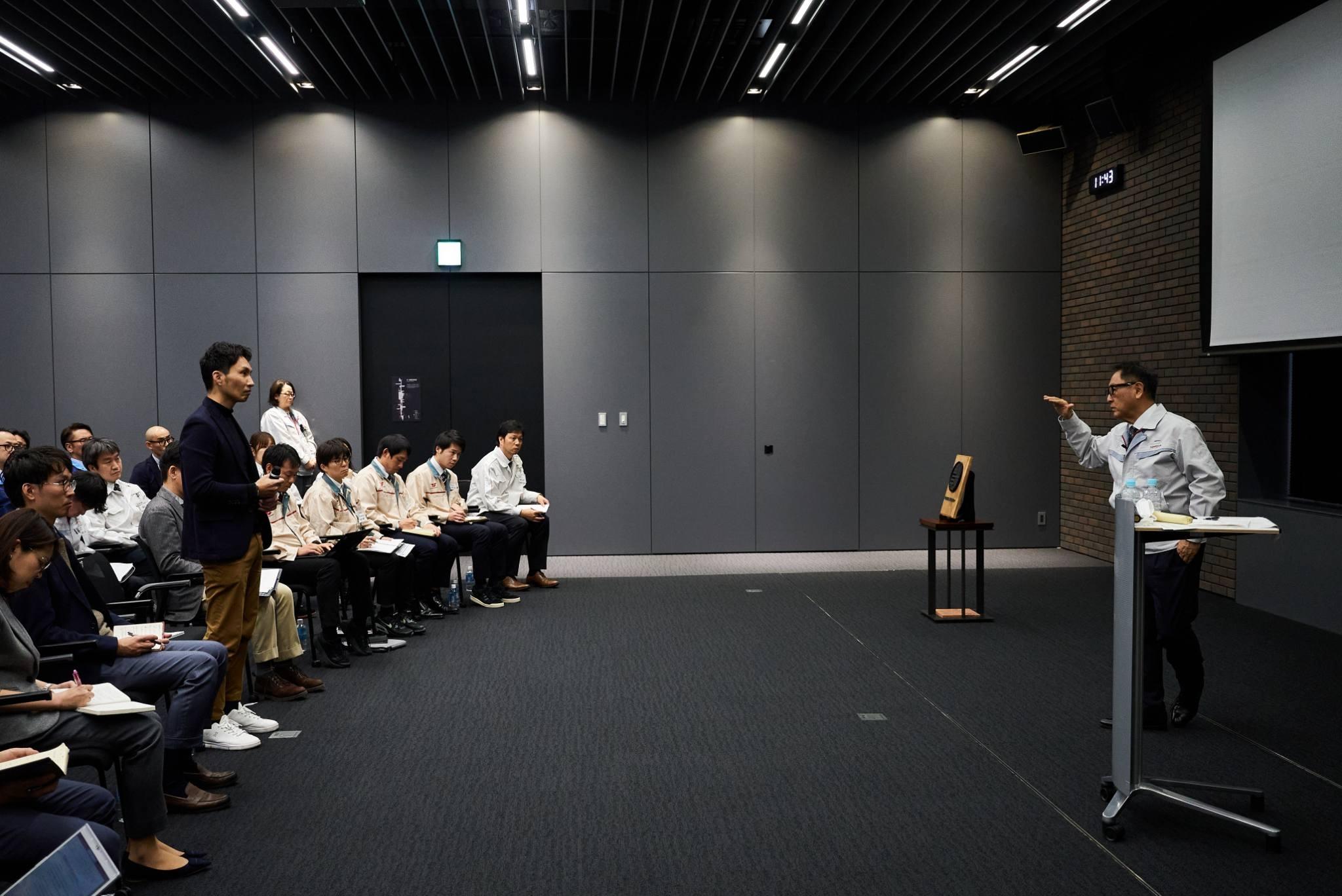
Toyota Group genba leaders, selected by roles rather than titles, gathered for a candid dialogue with Chairman Akio Toyoda, who has vowed to take responsibility and "lead the transformation."

On February 12, roughly two weeks after unveiling the Toyota Group’s vision to the press, Chairman Akio Toyoda hosted a dialogue with some 80 frontline leaders from 20 Group companies at a training facility in Gamagori, Aichi Prefecture.
This gathering was about fulfilling his pledge, made at the press conference, to “lead the transformation” as the person responsible for the Toyota Group. In the morning, Akio answered questions and inquiries from the participants, followed by an afternoon of cars and conversation.

At the outset, Chairman Toyoda explained the day’s purpose: “Today, I want to connect with you individually. Each of you possesses your own skills, and we need people like you to become leaders and revitalize the Group. Despite our limited time today, I want to use this opportunity to engage with each other, person to person.”
The idea originated with the January 30 vision briefing, which brought together representatives from each Group company. Alongside chairmen, presidents, and other top managers, the invitation had called for “genba leaders.”
While many companies sent the likes of chief officers and executives, attendees from Toyota included the head coach of the women’s basketball team and recent graduates from the company’s in-house training facility, the Toyota Technical Skills Academy.
Chairman Toyoda himself commented on the situation, saying, “There is a gap between Toyota Motor and the other companies. For 14 years, I have been saying that our work should revolve around roles, not titles. I think we can see that difference manifested here today.”
This time, the session brought together leaders of all stripes, regardless of qualifications, age, or gender. Below, we share their two-hour question-and-answer exchange with Chairman Toyoda.
Unlike his message for the press and company higher-ups, Akio’s advice focused on the individual concerns of those on the front lines.
The experiences that shaped Akio’s mindset
What experiences and positions helped form your current mindset during your time at Toyota?
Chairman Toyoda

I joined Toyota mid-career. I had worked in investment banking in the U.S. and U.K. for about two years, then joined a consulting firm, but wherever I went, people only saw me as a “car guy.”
If that’s the case, I figured I may as well join Toyota, but my father (Honorary Chairman Shoichiro Toyoda, then president) warned me, “You can join if you like, but no one will want you working under them.”
And sure enough, being the president’s son and having the Toyoda name meant that, whenever I tried to draw near, people were conscious of dealing with the founding family. They didn’t want to be firm with me for fear that I would go running to my father.
The best way for people to get by was having nothing to do with me. And so, joining Toyota made me feel even more alone.
My first posting was at the Motomachi Plant, and the experience I gained there was instrumental.
I worked on a Crown model change as part of the Plant Administration Division. As you know, a lot of things happen in a plant on any given day.
Whenever I made my reports, I was always asked, “Did you see it for yourself, or is this something you heard from others?”
I feel that this experience instilled in me the concept of genchi-genbutsu, and the core idea that people close to the products and the genba must have a voice.
I am also often asked, “What should I learn, in which departments?” While I was trying to figure out where to go and what experience to gain after Motomachi, someone asked me:
“Do you know how many departments there are at Toyota?”
When I guessed around 200 or so, they replied, “Then spending a year in each would take 200 years, so don’t be foolish enough to think you can experience them all.”
What I did in which department didn’t matter. Wherever I went, I learned about the people I would meet, the skills and conduct of that discipline, and the experience needed to be recognized as a professional.
While many people are content with their current job, I’m sure some do not feel that way. Yet all of it has meaning. No experience is pointless—what you take out of it is up to you.
I think it helps to assume that those who can’t find happiness now will never find happiness.

